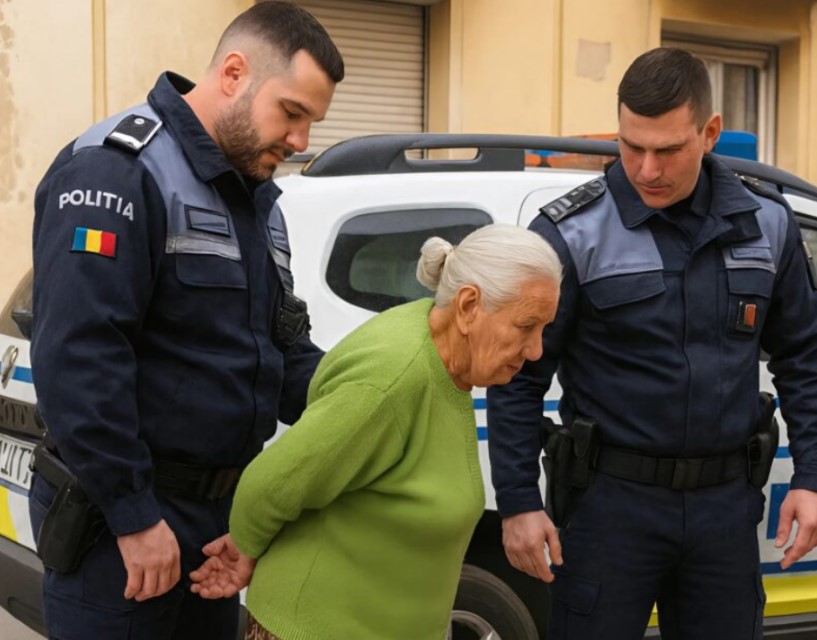The call came in shortly after noon:
A report of unauthorized street vending near the town’s main intersection.
Two officers, Daniel and Leo, headed to the location expecting another routine warning. But when they arrived, their firm posture softened immediately.
Standing on the sidewalk was a frail elderly woman, leaning slightly on a wooden crate filled with neatly arranged tomatoes, cucumbers, carrots, and fresh herbs. Her sweater was worn, her skirt faded, and her hands trembling slightly from fatigue.
Officer Daniel approached her gently.
“Ma’am,” he said, “you know street selling isn’t allowed in this area, right?”
The old woman sighed deeply.
“I know, son. But I need money for my son’s medicine. He’s sick, and we’re struggling. These vegetables… I grow them myself. I’m not doing anything wrong.”
Her voice cracked as she spoke, and the officers exchanged a quiet look.
The rules were clear — but compassion tugged hard at them.
“We won’t issue a fine today,” Daniel said kindly. “But please try to find another way to earn money. Someone else might report you again.”
“Oh yes, yes, of course,” she nodded quickly, almost too quickly — as if she couldn’t wait for them to leave.
Officer Leo smiled sympathetically. “Since we’re here, let us buy a few vegetables from you. It’s the least we can do.”
But the woman suddenly tensed.
“No, no need,” she said quickly. “I already have many customers.”
Leo glanced around. The street was completely empty.
“Customers? There’s no one here.”
“They come early,” she replied with a nervous laugh. “You just missed them.”
Daniel reached for a tomato.
“Then we’ll buy this one,” he said gently.
“No!” she said sharply, surprising both officers. “No, please. Leave it. Someone else might need it.”
Her hands trembled more now. Her gaze shifted constantly toward the crate — as if she were afraid they might touch it.
Something wasn’t right.
Daniel knelt down to examine the vegetables. He lifted a tomato, turning it slowly in his hand. At first glance, it looked perfectly normal — fresh, bright, well-grown.
But then he noticed something unusual.
“Leo,” he said quietly, “look at this.”
On the underside of the tomato was a small round sticker — the kind used by grocery chains to track produce shipments. But this sticker didn’t match the type used locally. None of the vegetables in the crate did. And some still carried faint traces of labels that had clearly been peeled off earlier.
Daniel stood up slowly.
“Ma’am,” he said gently but firmly, “where did you really get these vegetables?”
The woman froze. Her eyes lowered, her shoulders slumped. She didn’t answer.
The officers contacted the local market department. Within minutes, the truth came out:
The vegetables didn’t come from her garden at all.
They were taken from a delivery warehouse she used to work at — a place she still had access to even after leaving her job. Each morning, she collected unsold produce that hadn’t been logged yet and brought it to the street corner to resell without permission.
She hadn’t meant harm — she had simply been afraid, overwhelmed, and desperate to provide for her sick son.
Instead of arresting her, the officers contacted social services. The woman was given assistance, her son received proper medical support, and she was offered a legitimate program where she could sell her garden produce legally and safely.
Leo later said, “Sometimes people hide mistakes behind kind faces — but sometimes they hide hardship. You never know until you look closer.”
The world can be complicated — but compassion and truth always make it clearer.




